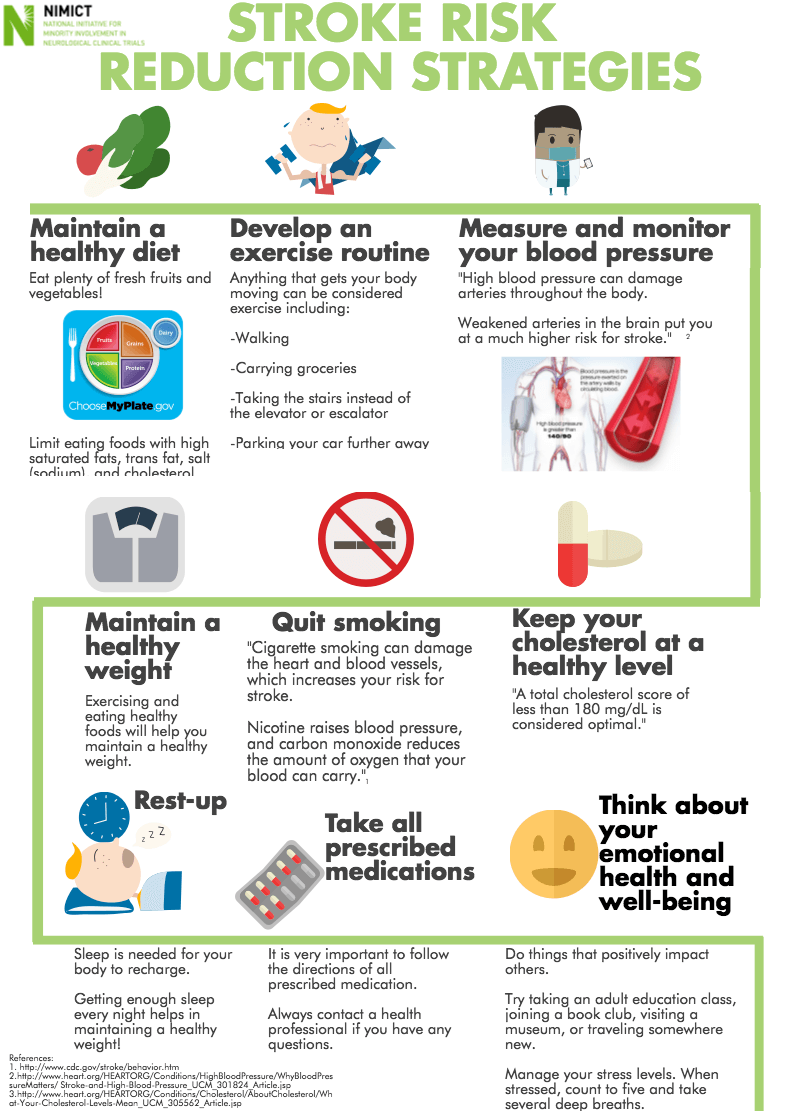Stroke Risk Reduction Strategies
NIMICT Original

Stroke Risk Reduction Strategies
Maintain a healthy diet
-Eat plenty of fresh fruits and vegetables!
-Limit eating foods that are high in saturated fat, trans fat, salt (sodium), and cholesterol.
Develop an exercise routine
Anything that gets your body moving can be considered exercise including:
-Walking
-Carrying groceries
-Taking the stairs instead of the elevator or escalator
-Parking your car further away
Measure and monitor your blood pressure
"High blood pressure can damage arteries throughout the body. Weakened arteries in the brain put you at a much higher risk for stroke."
Keep your cholesterol at a healthy level
"A total cholesterol score of less than 180 mg/dL is considered optimal."
Quit smoking
"Cigarette smoking can damage the heart and blood vessels, which increases your risk for stroke. Nicotine raises blood pressure and carbon monoxide reduces the amount of oxygen that your blood can carry."
Maintain a healthy weight
Exercising and eating healthy foods will help you maintain a healthy weight.
Rest-up
-Sleep is needed for your body to recharge.
-Getting enough sleep every night helps in maintaining a healthy weight!
Take all prescribed medications
-It is very important to follow the directions of all prescribed medication.
-Always contact a health professional if you have any questions.
Think about your emotional health and well-being
-Do things that positively impact others.
-Try taking an adult education class, joining a book club, visiting a museum, or traveling somewhere new.
-Manage your stress levels. When stressed, count to five and take several deep breaths.